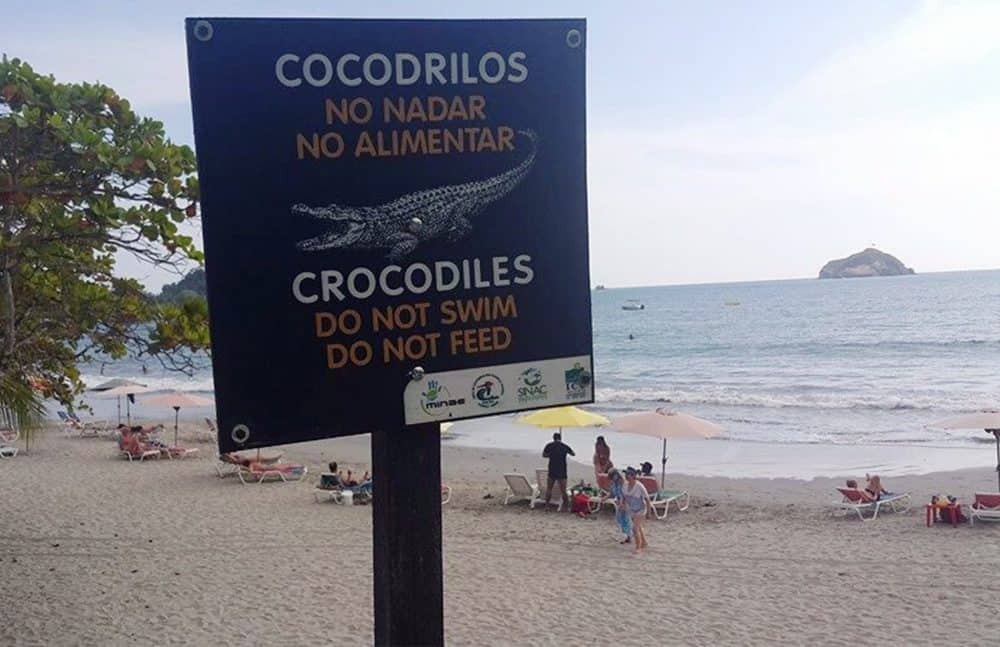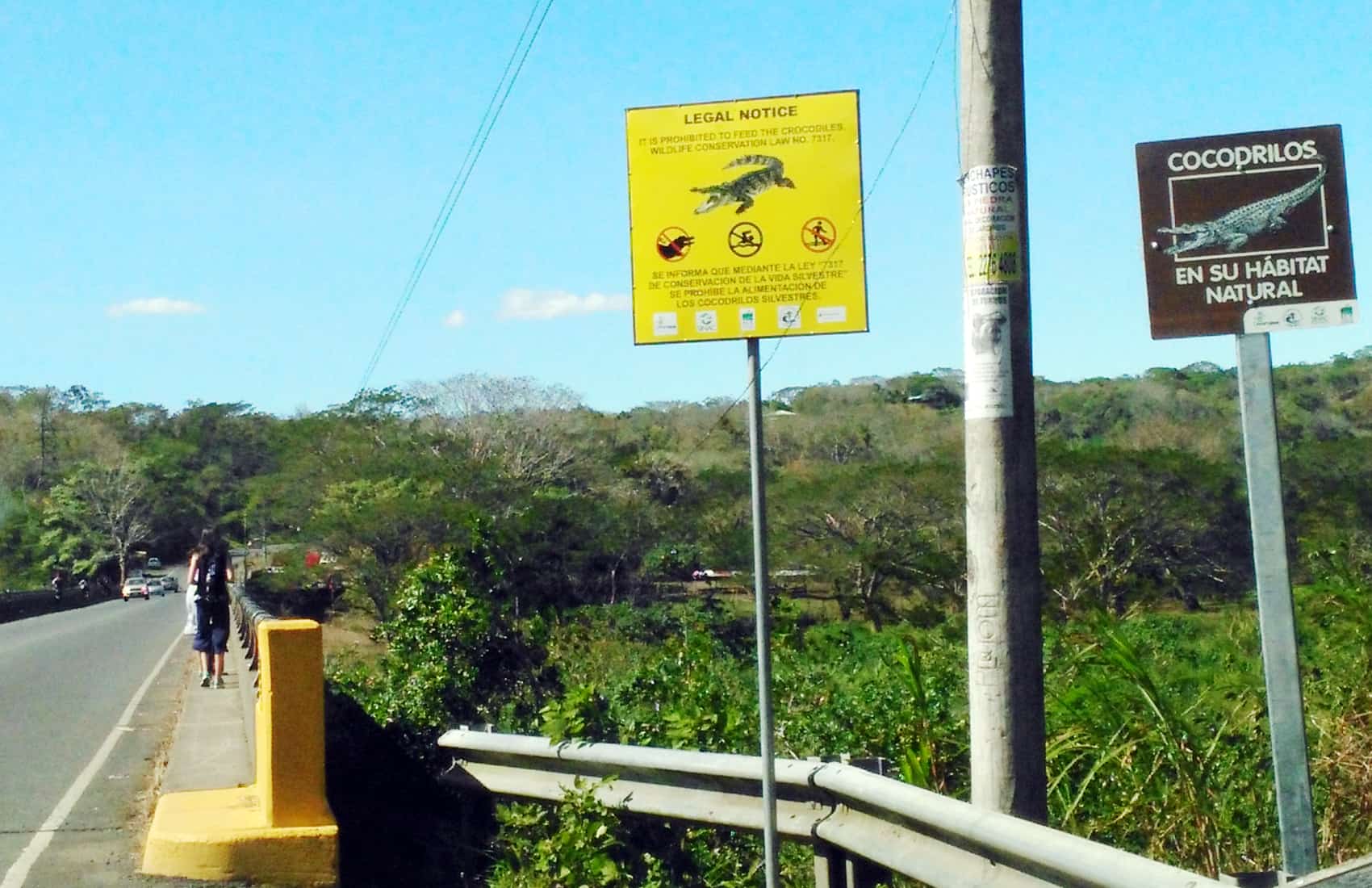Costa Rica’s Central Pacific Conservation Area (ACOPAC) has seen a decrease by up to 90 percent in complaints related to tourists feeding or approaching crocodiles, the Environment Ministry’s National System of Conservation Areas (SINAC) reported this week. SINAC officials in February began placing signs warning tourists that feeding crocodiles is prohibited. The signs also list cautionary measures for observing wildlife in publicly accessible areas.
Puntarenas province is one of the most popular destinations for tourists, with many beaches and protected areas including Carara and Manuel Antonio, Costa Rica’s most visited national park and beach. It also is a popular spot for watching crocodiles in their natural habitat. Thousands of tourists on their way to Pacific destinations stop to watch the crocodiles, mostly at the bridge over the Tárcoles River and at the river’s dock at Azul beach.
ACOPAC Director of Wildlife Protection Adrián Arce Arias said many people who come to watch also feed the crocodiles to cause fights over food. “Some business owners here even used to sell tourists pieces of raw chicken or beef tied to a rope, and that affected local residents because crocodiles became accustomed to approaching humans for food,” he said.
This caused several incidents of crocodiles entering private property and tourists dangerously approaching crocodiles to feed them. According to Arce, the number of complaints by locals about tourists feeding or approaching crocodiles has substantially decreased since the signs were placed. He said he has received similar reports from other SINAC officials in conservation areas where warnings are placed.
“We have a WhatsApp group, and we periodically report about these incidents in the province. So far this year we only have received two reports of crocodiles in populated areas: one at Jacó beach and the other near the Puntarenas dock. We haven’t received any reports about attacks,” Arce said.
He said sightings are normal, particularly during mating season that runs from July to November. “[Crocodile] sightings have been reported in other months as well, and we believe changes caused by El Niño are confusing them,” he said. SINAC this week reported that it will continue placing warning signs in other areas of Puntarenas province, such as Quepos and Caldera.
The agency reported that local residents are now more receptive to the campaigns. Before, they opposed the signs, believing they would drive tourists away. Earlier this year two crocodile-related incidents were reported: one in the province of Guanacaste and the other in Alajuela.







